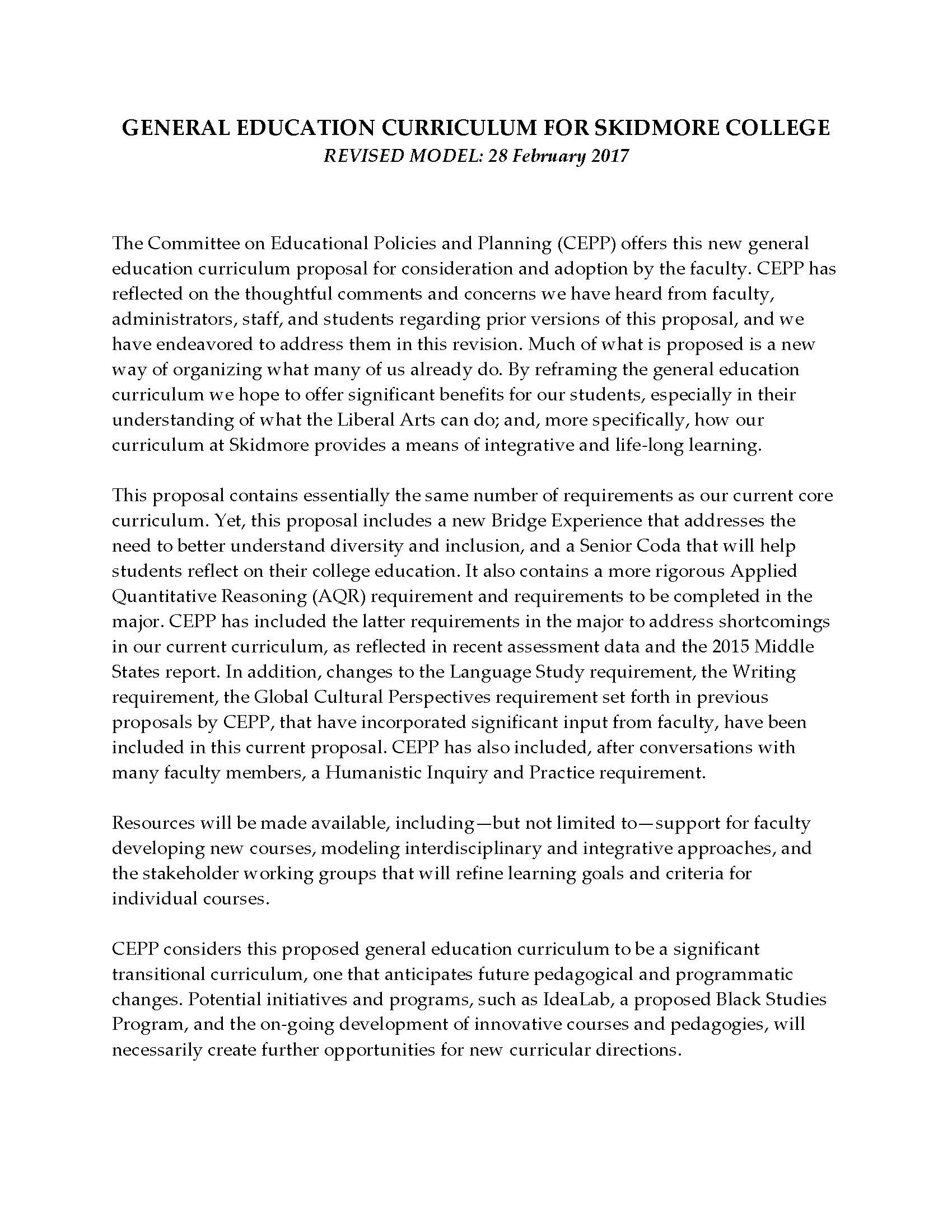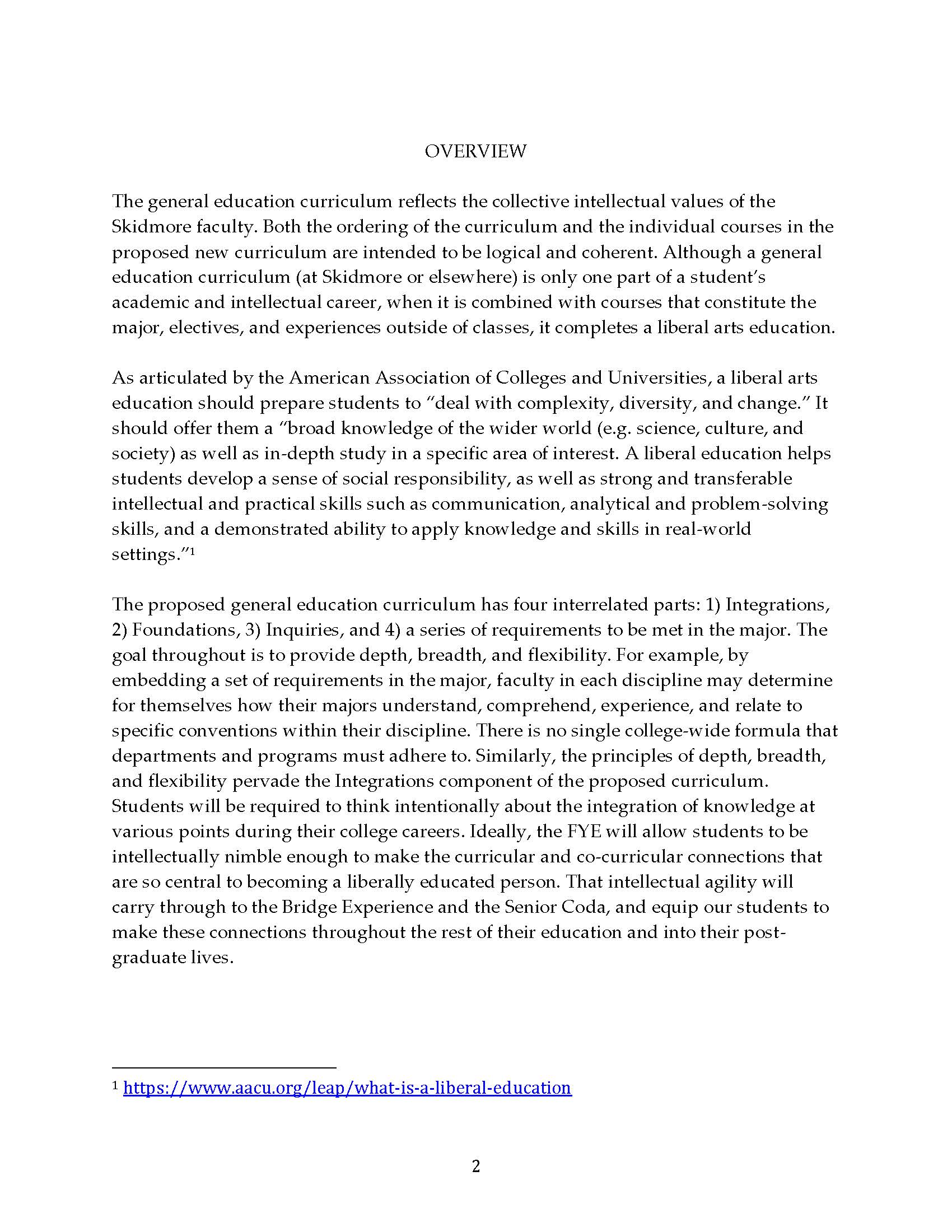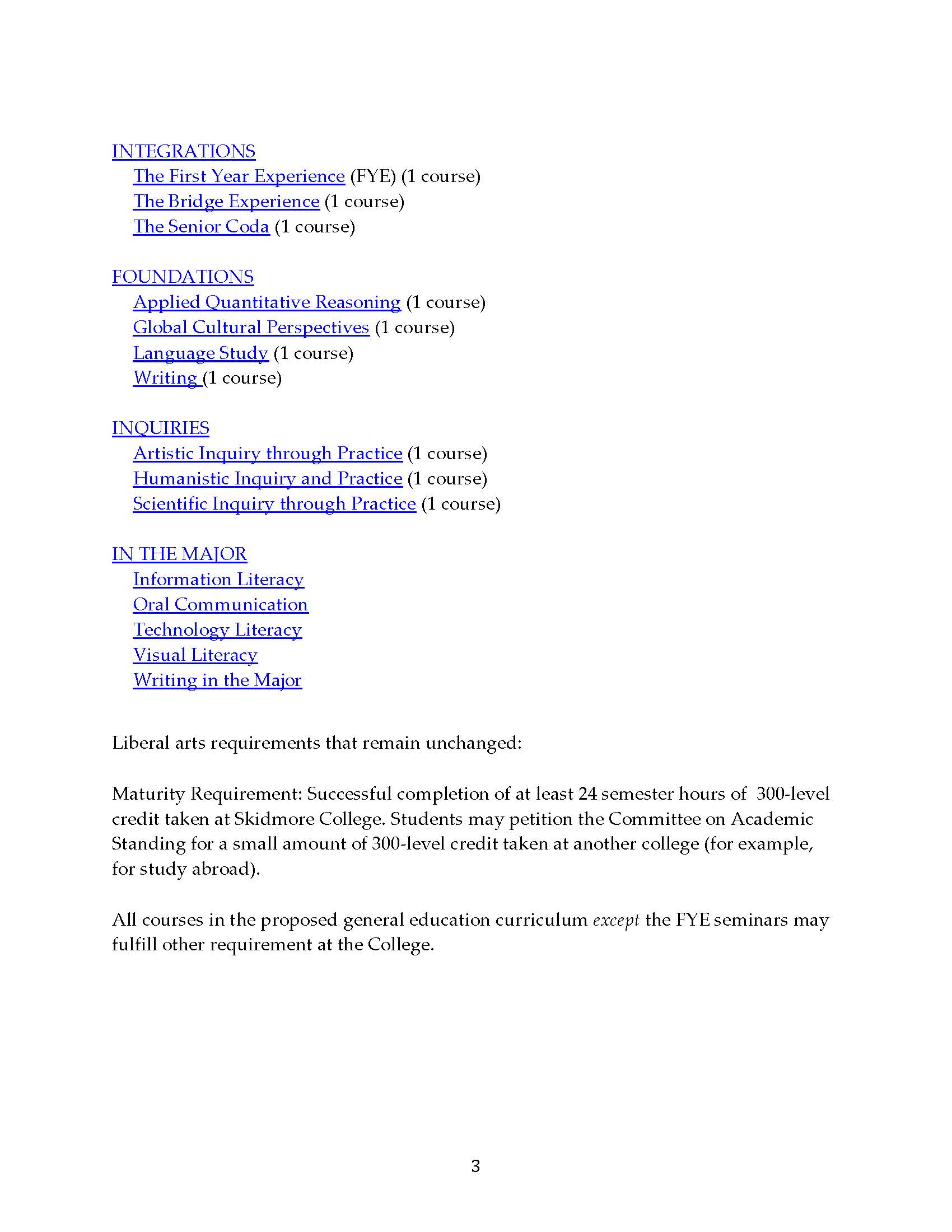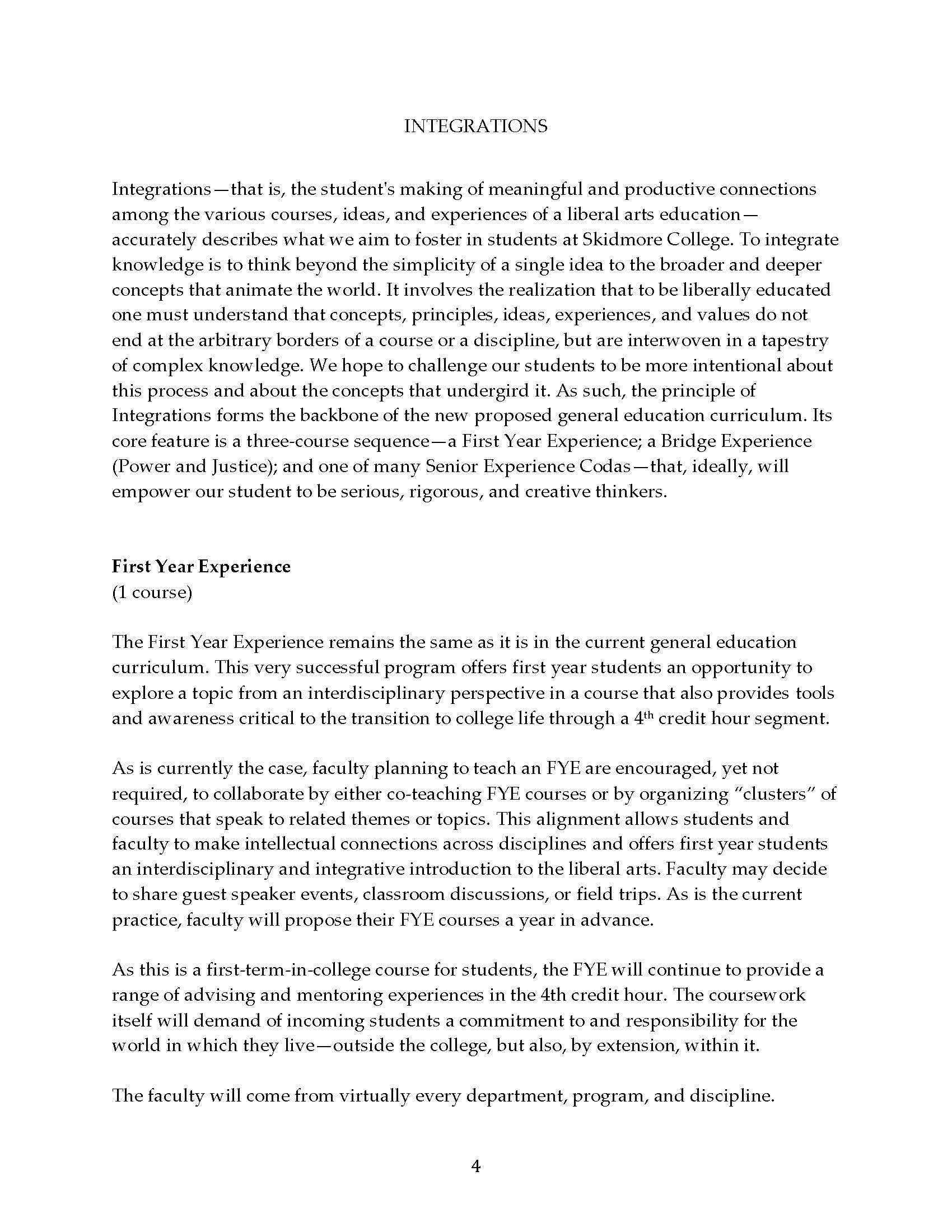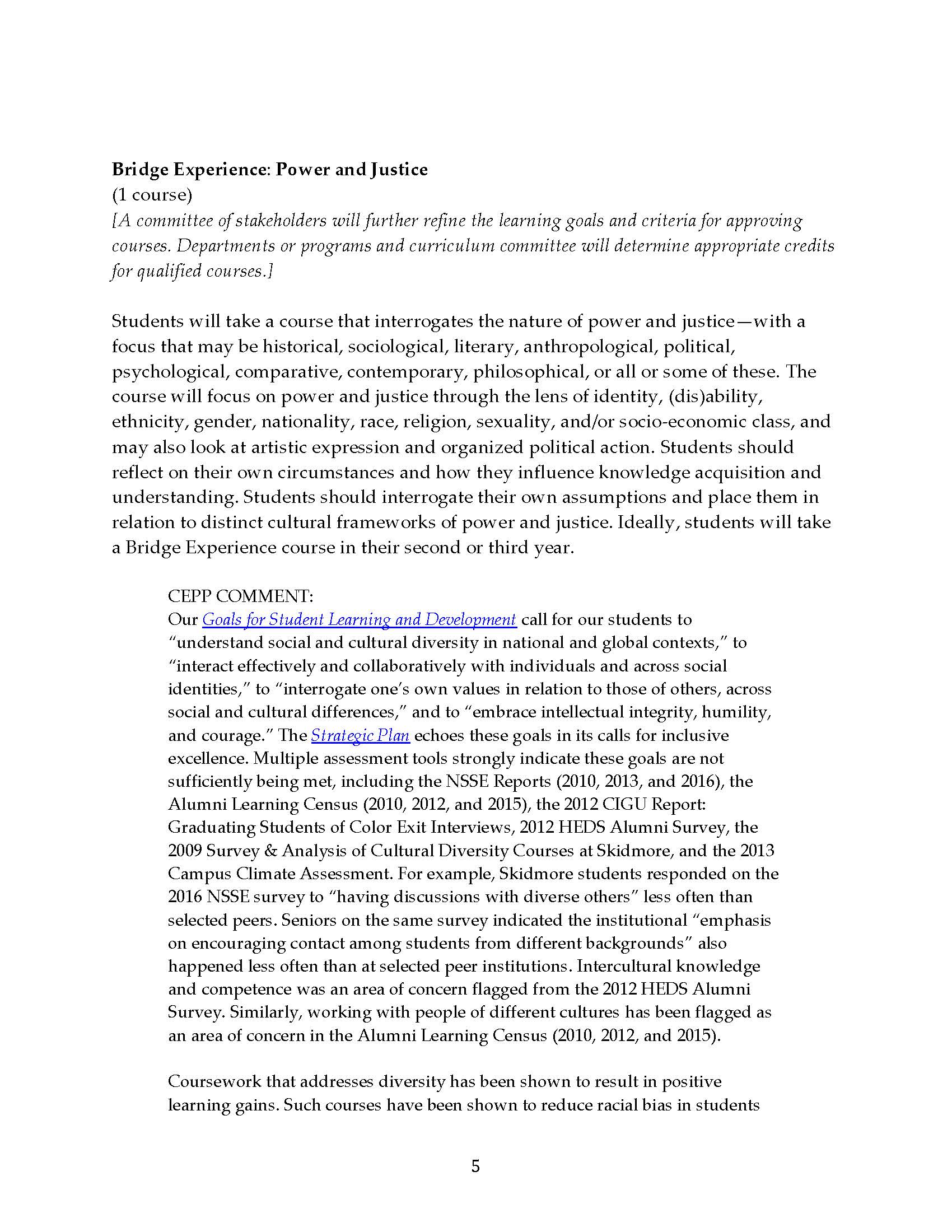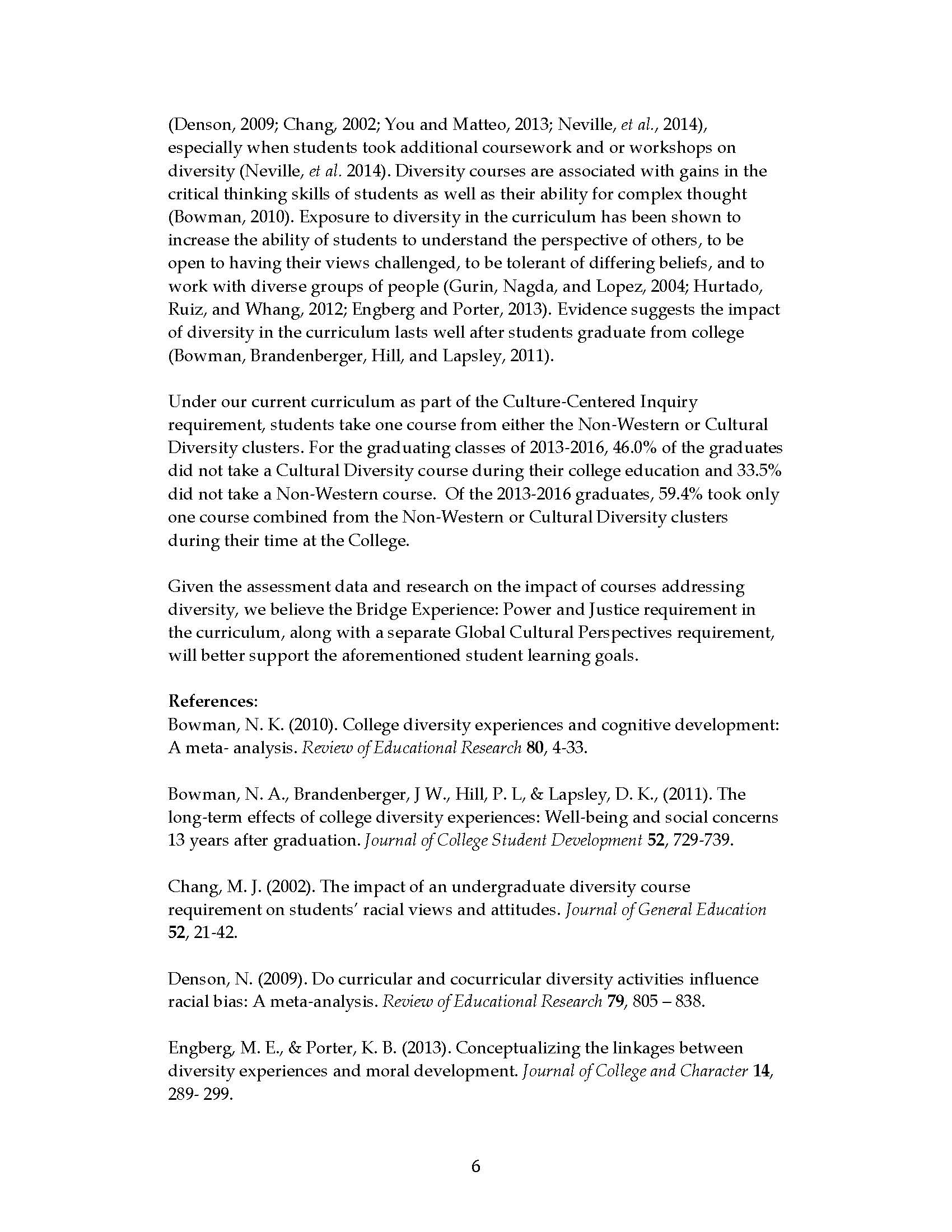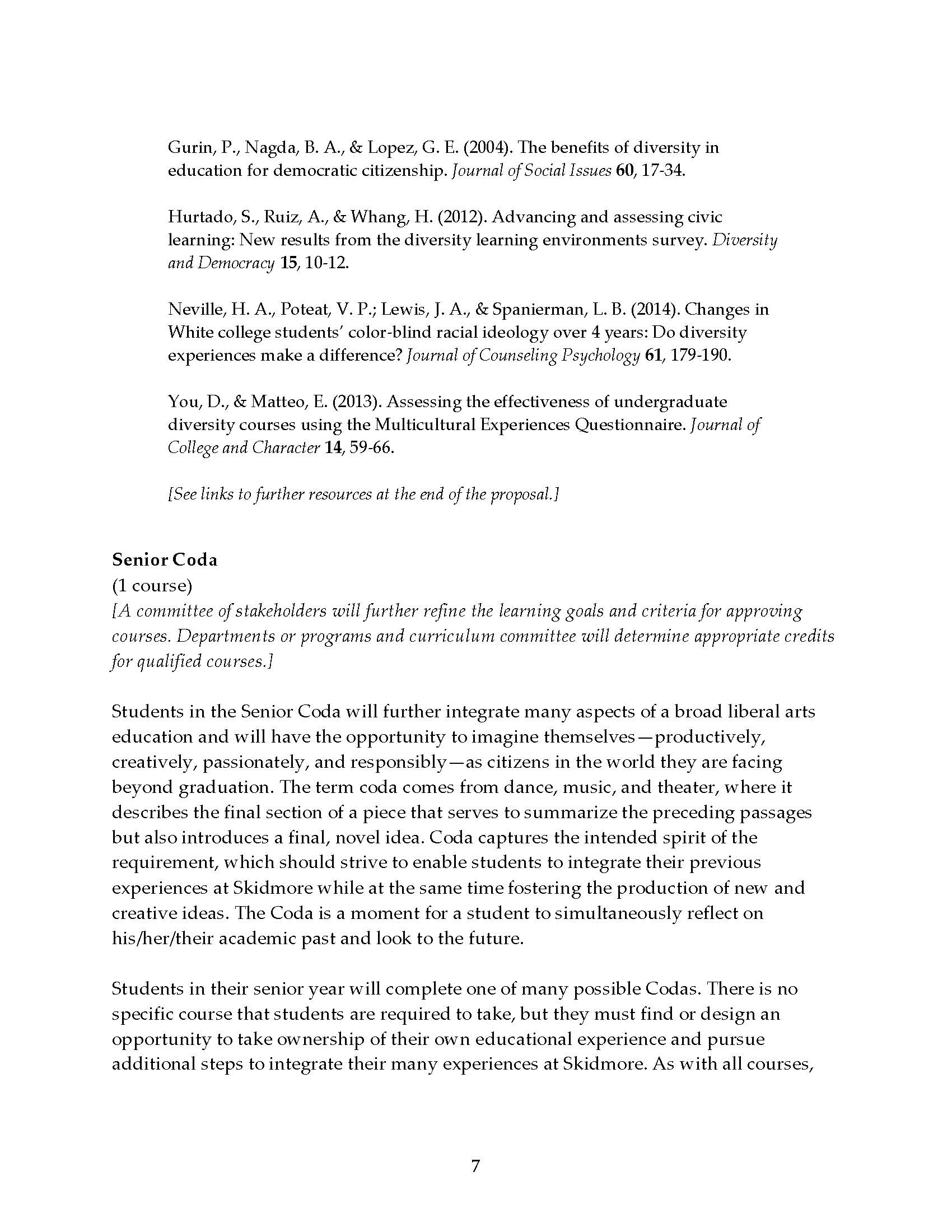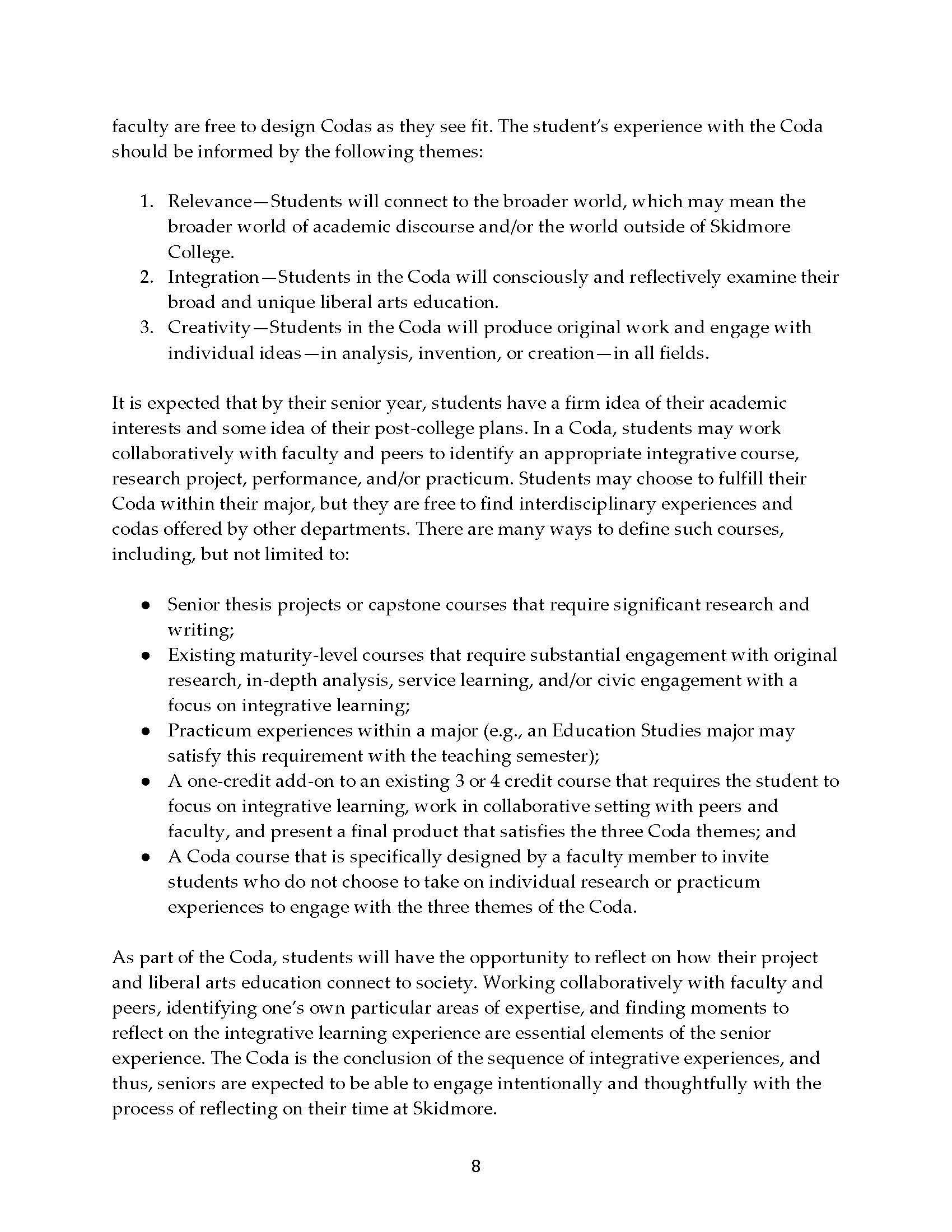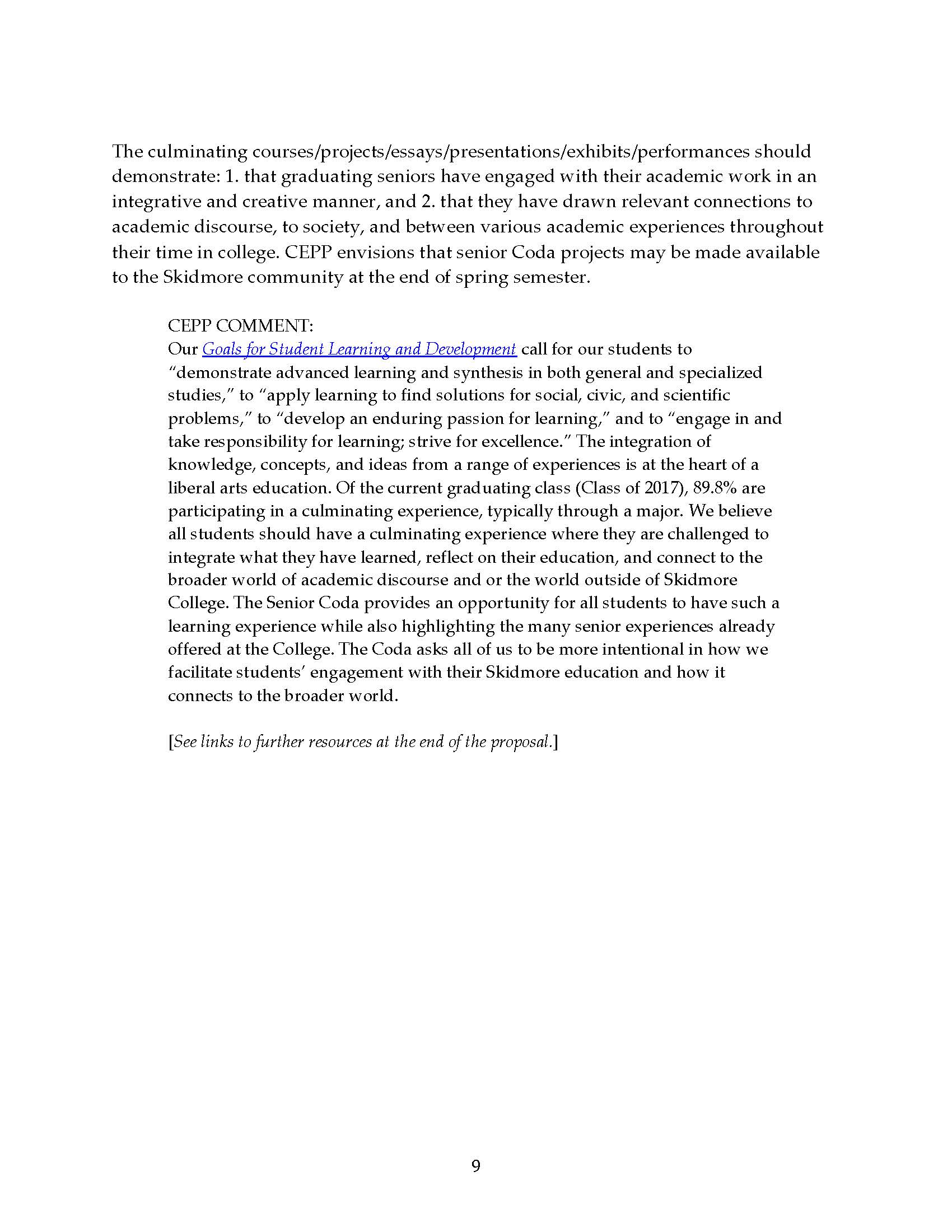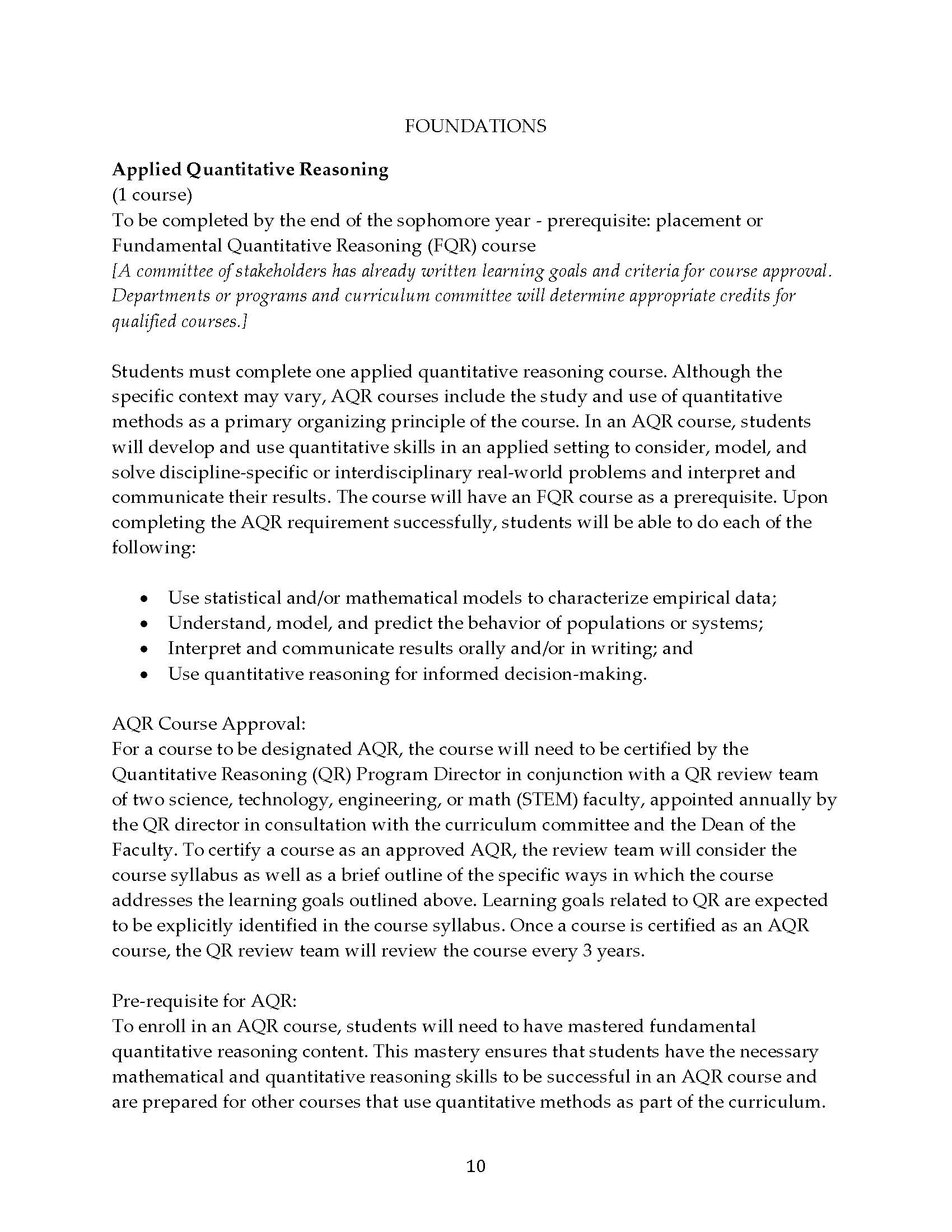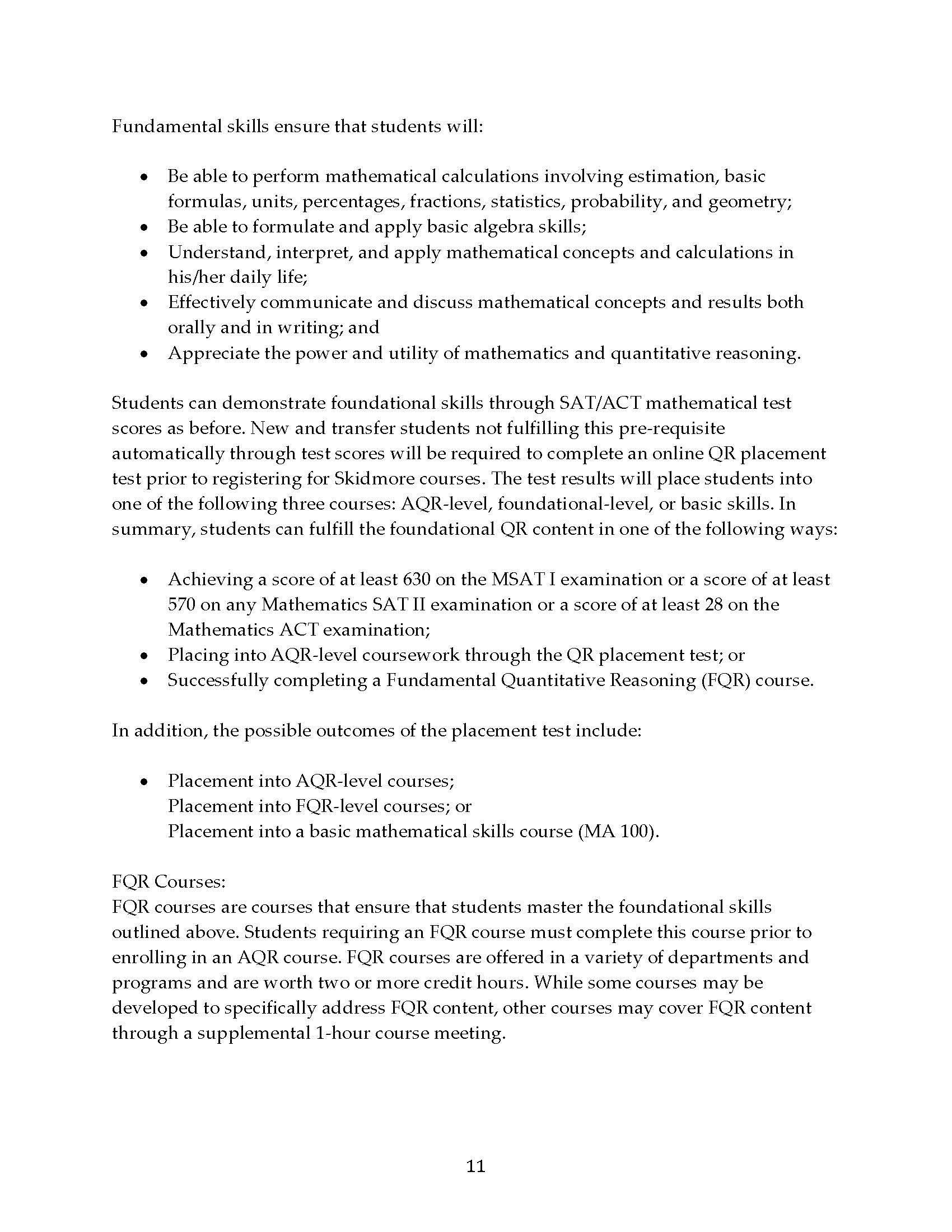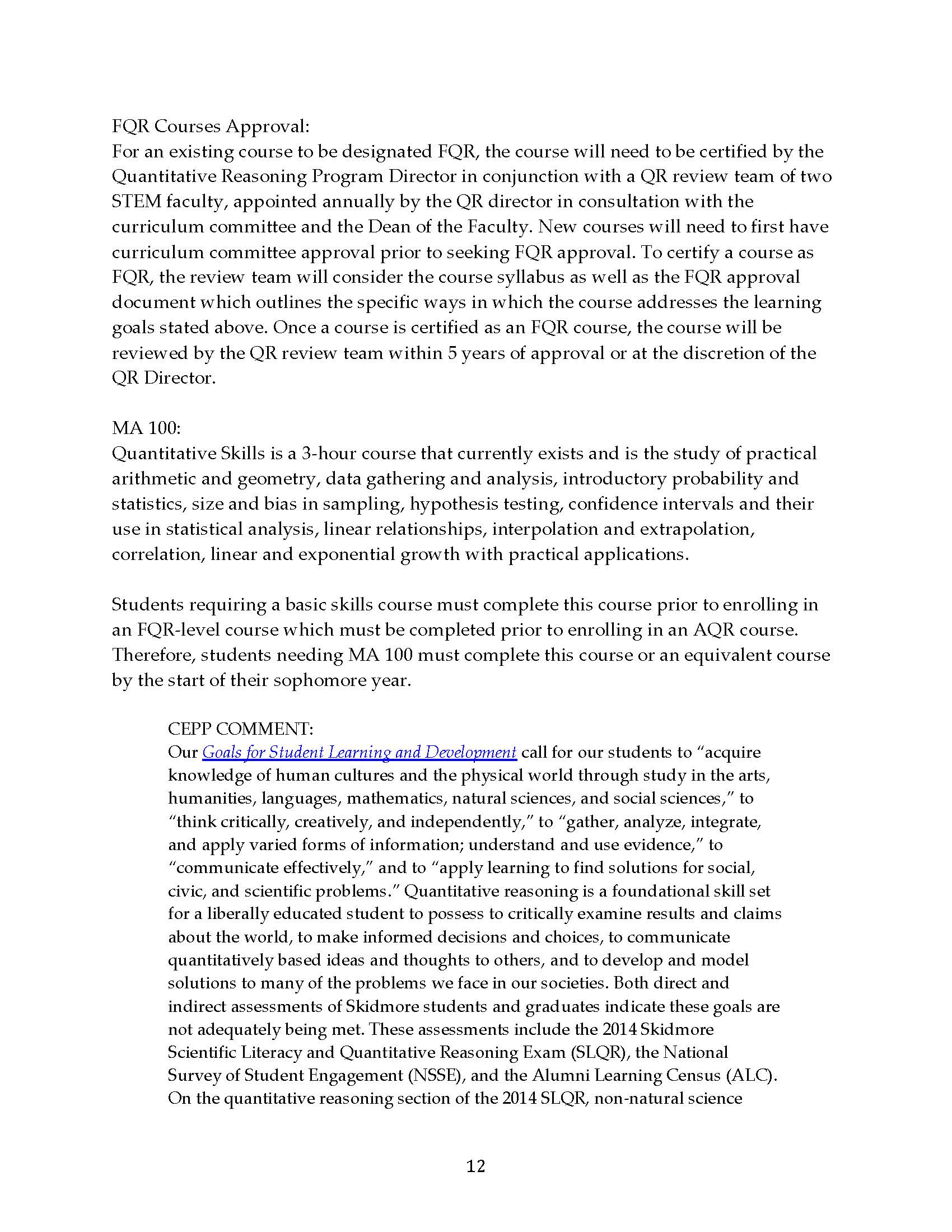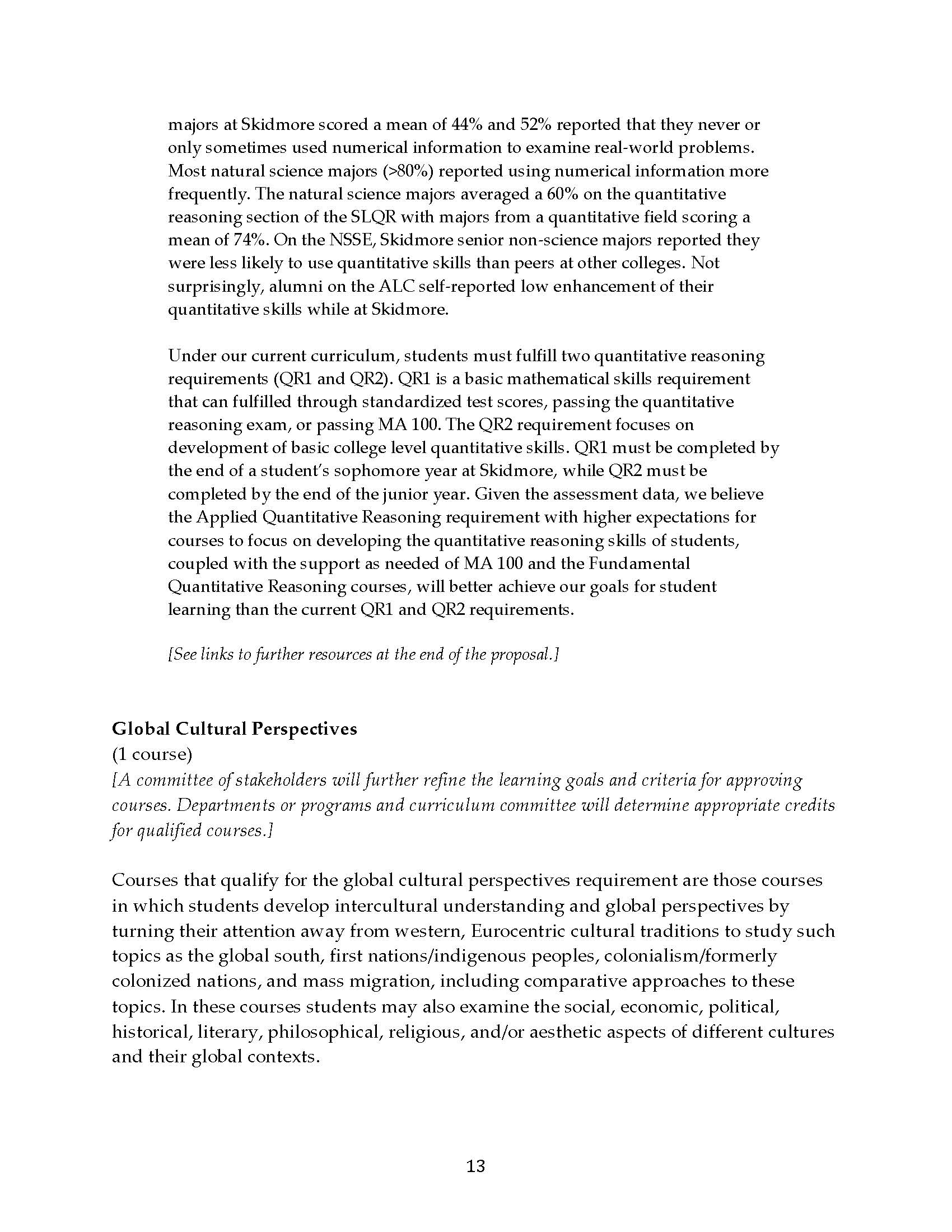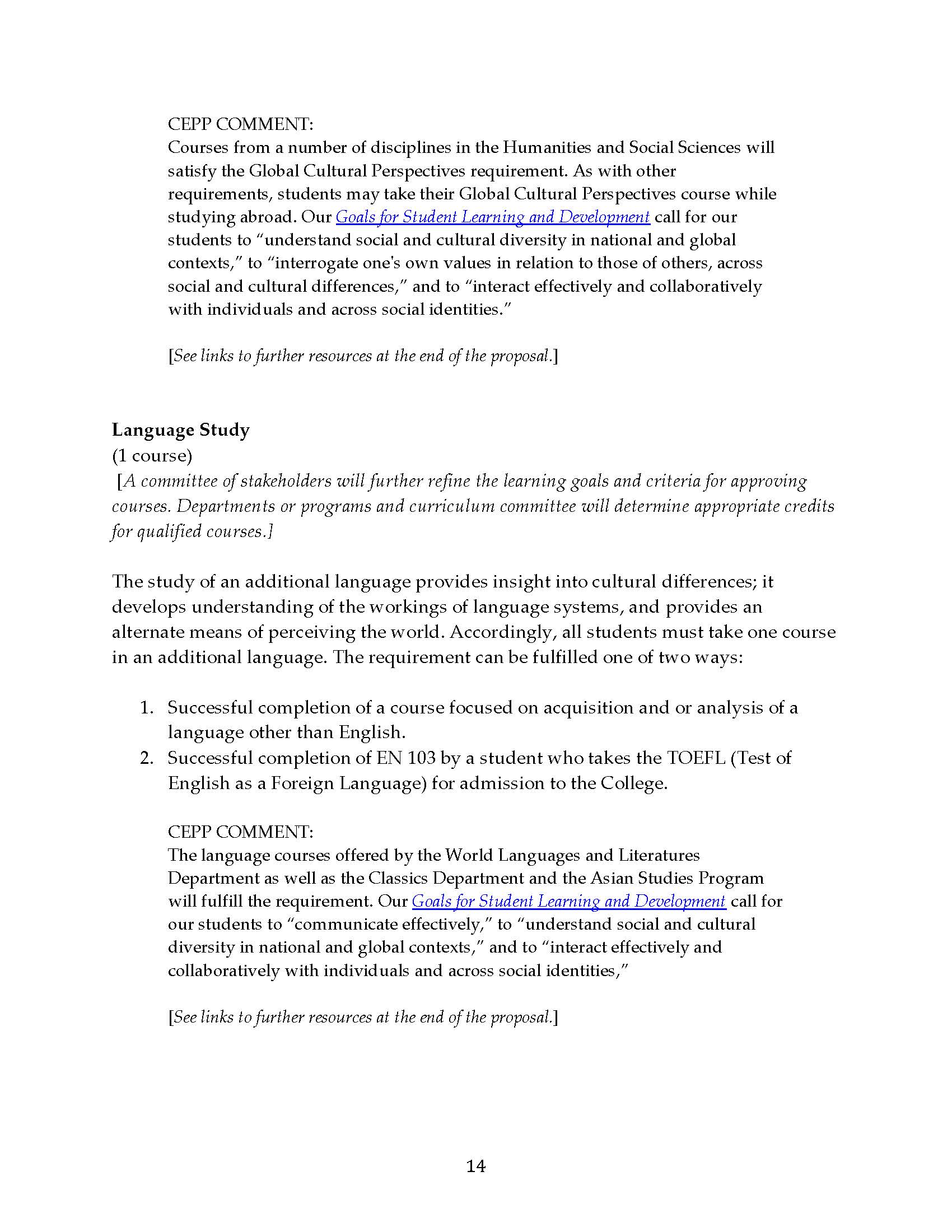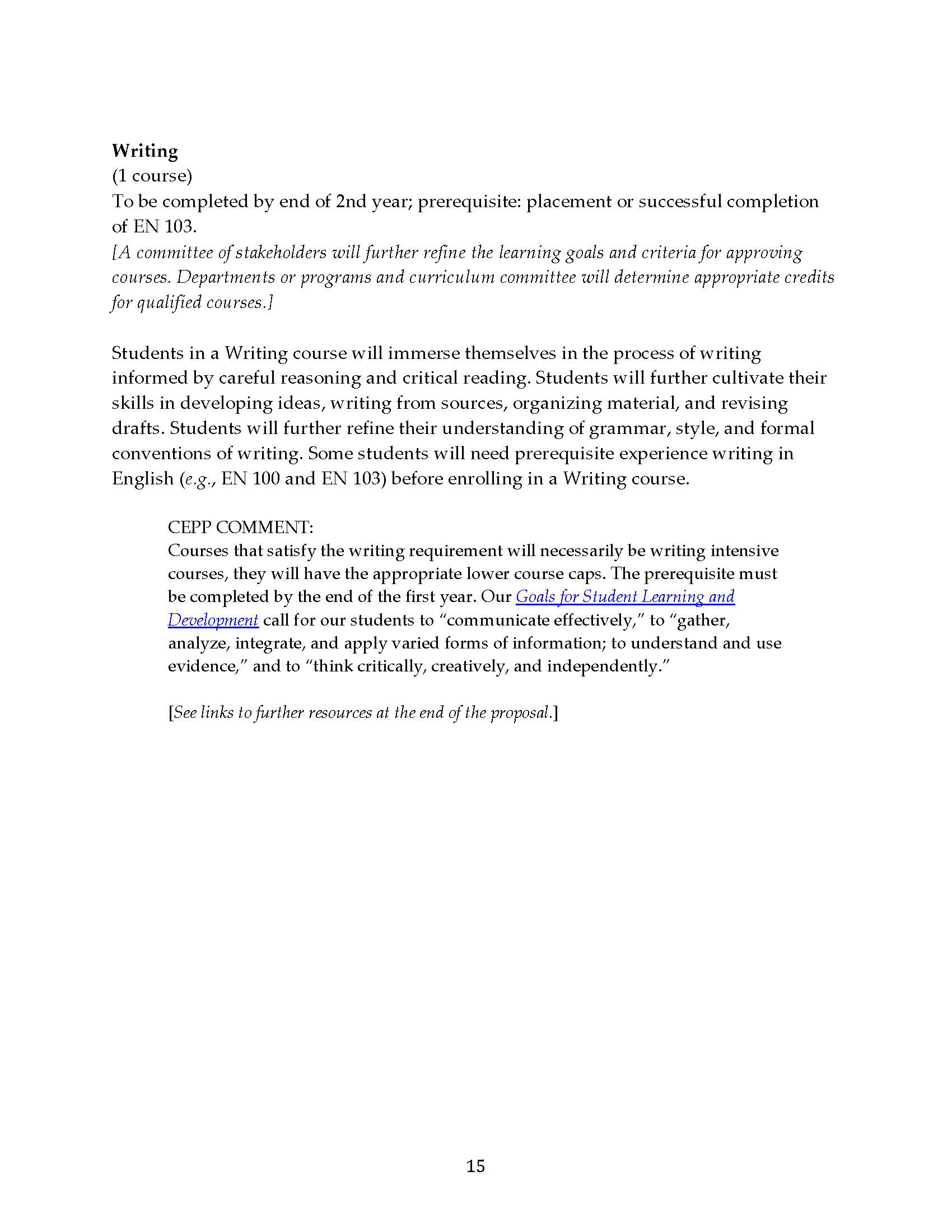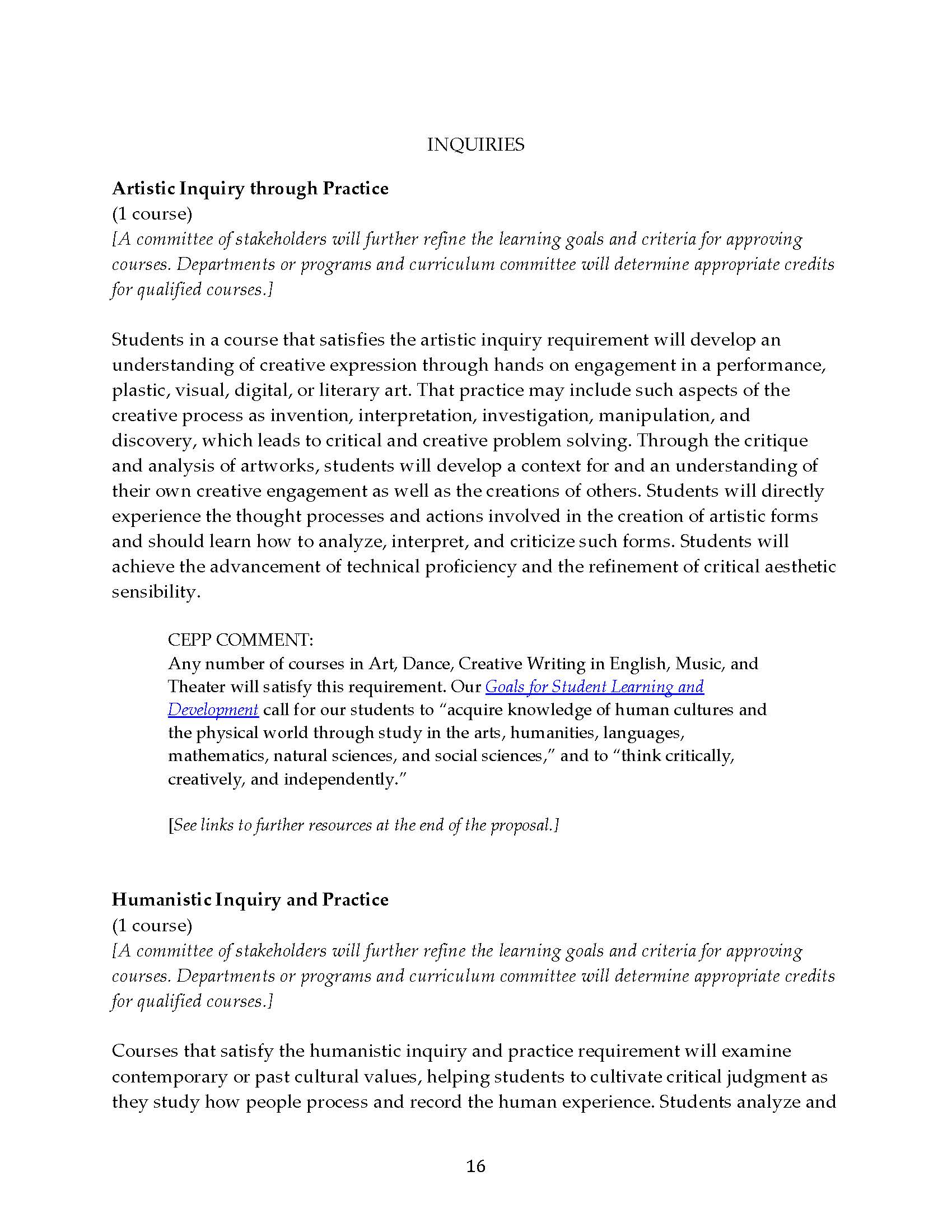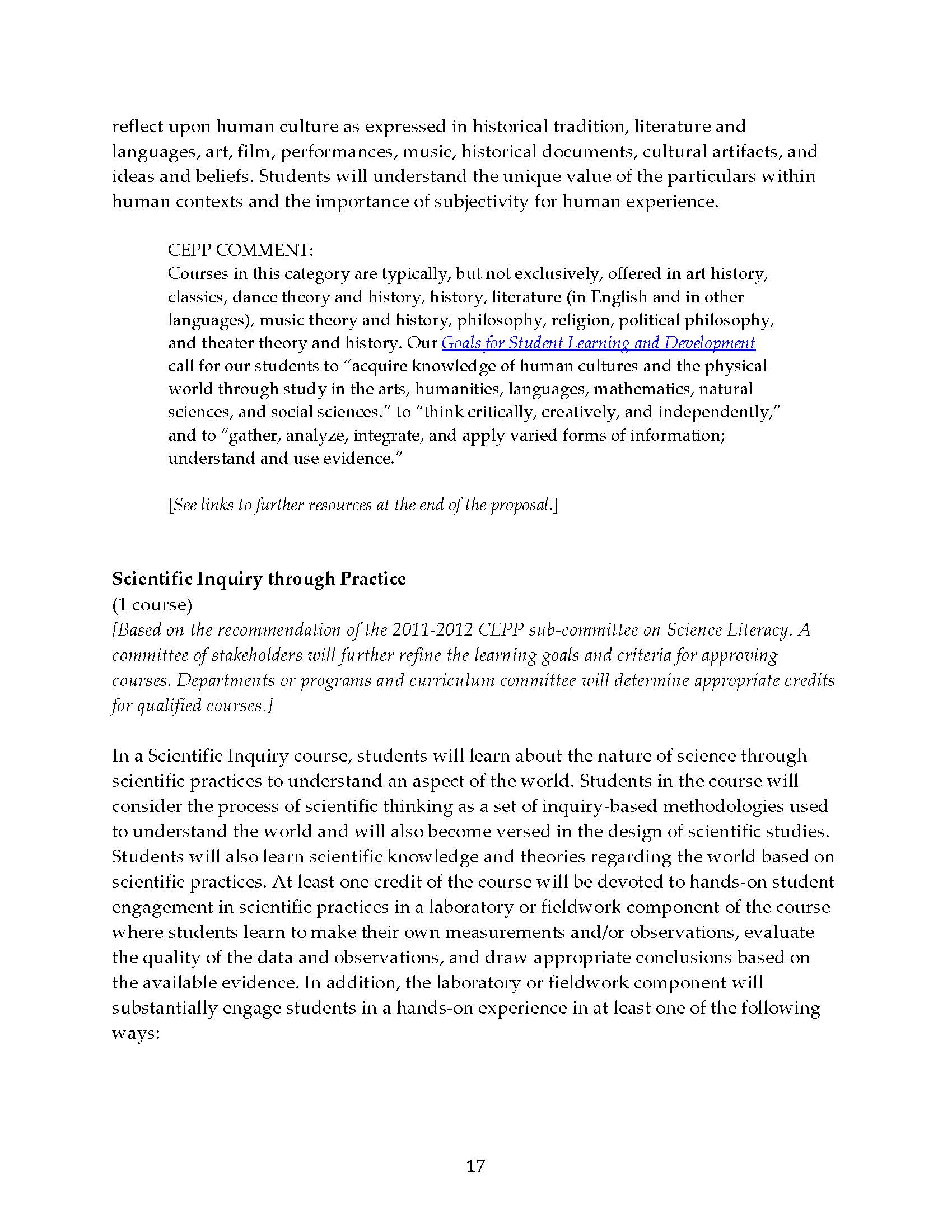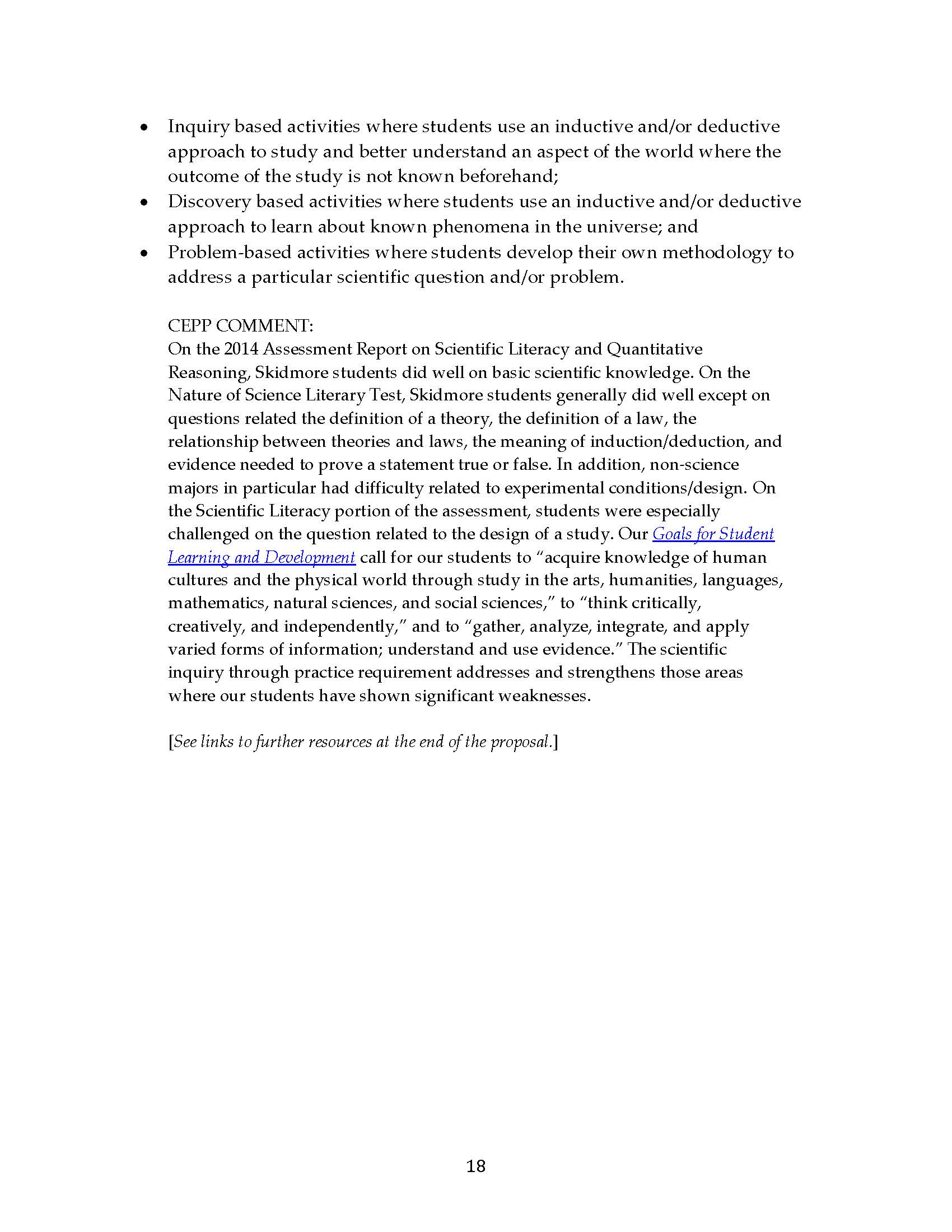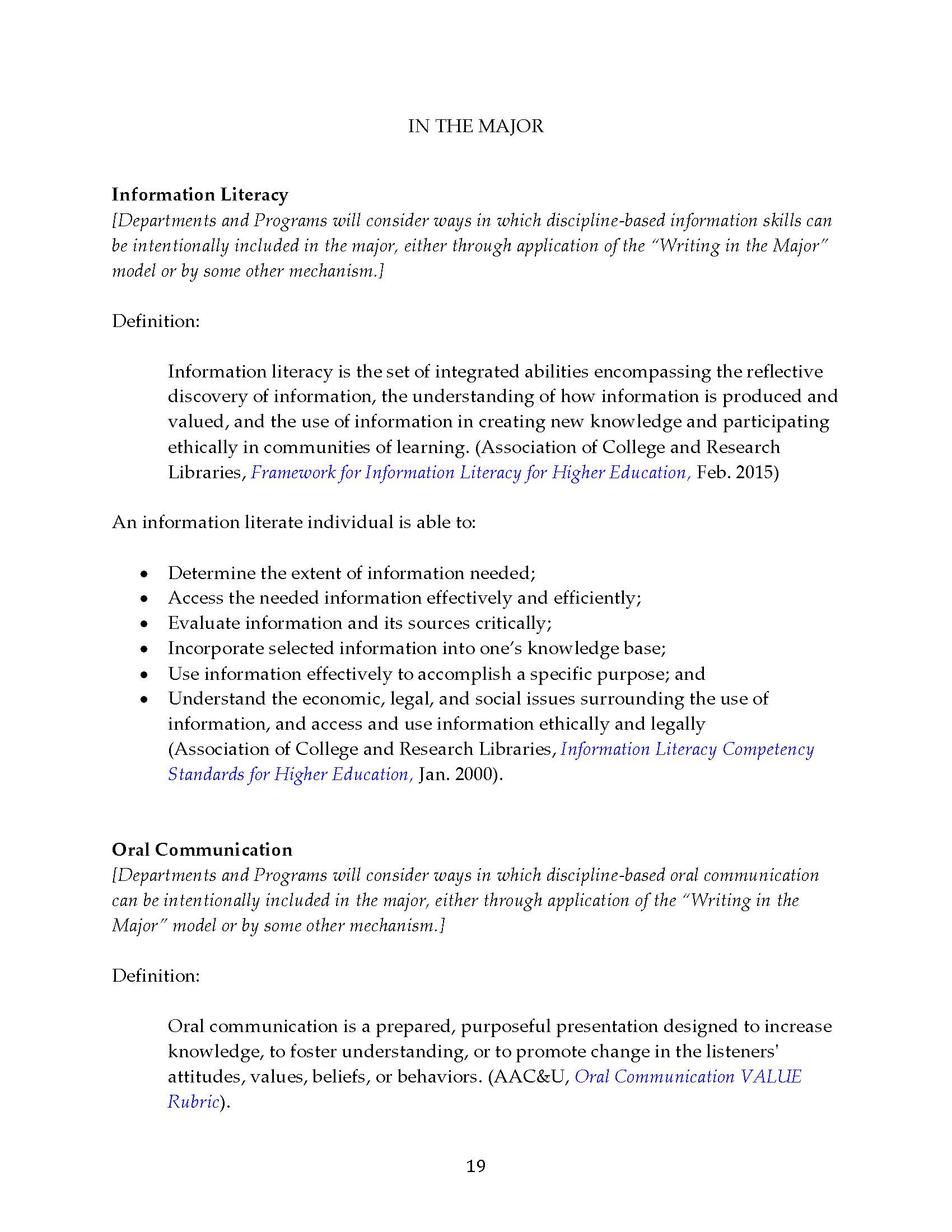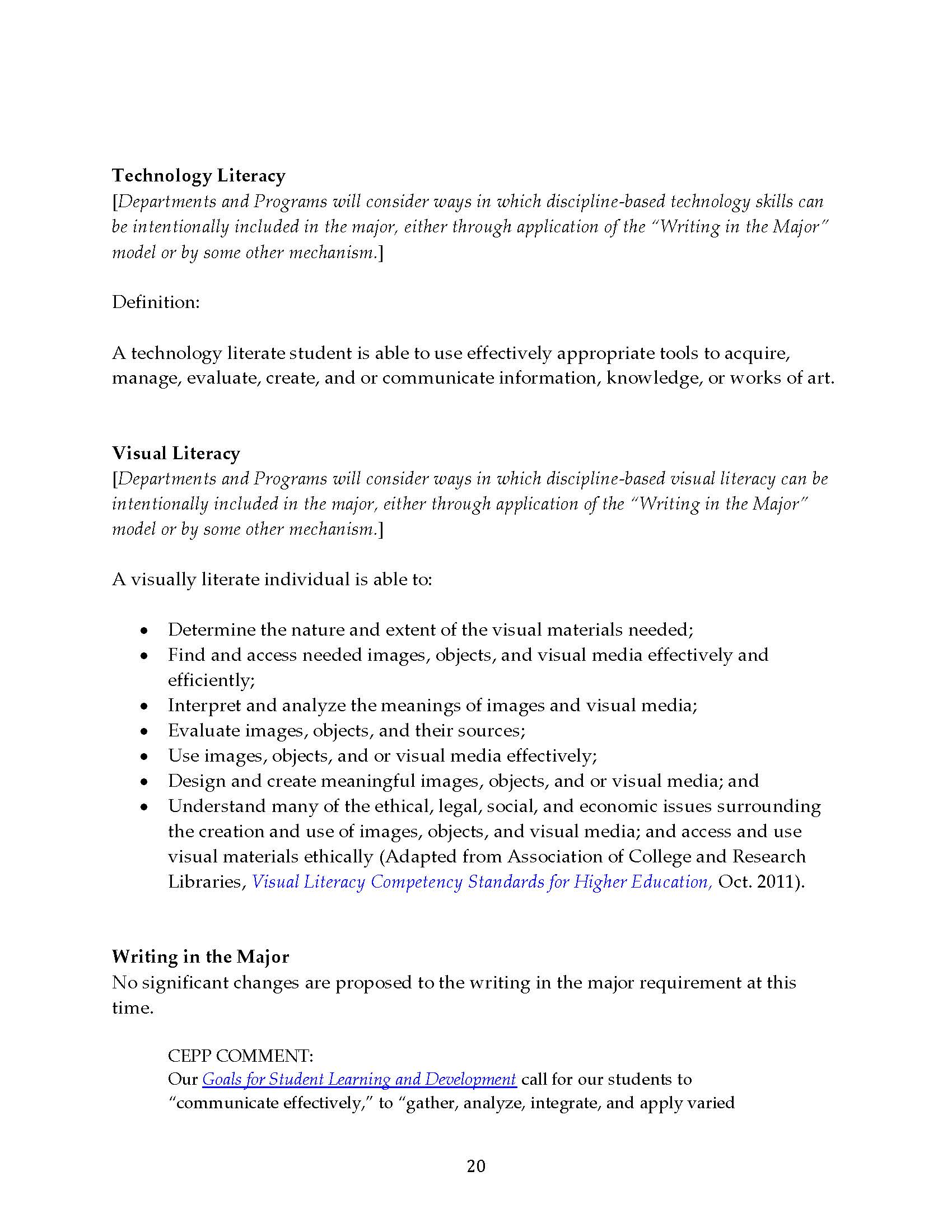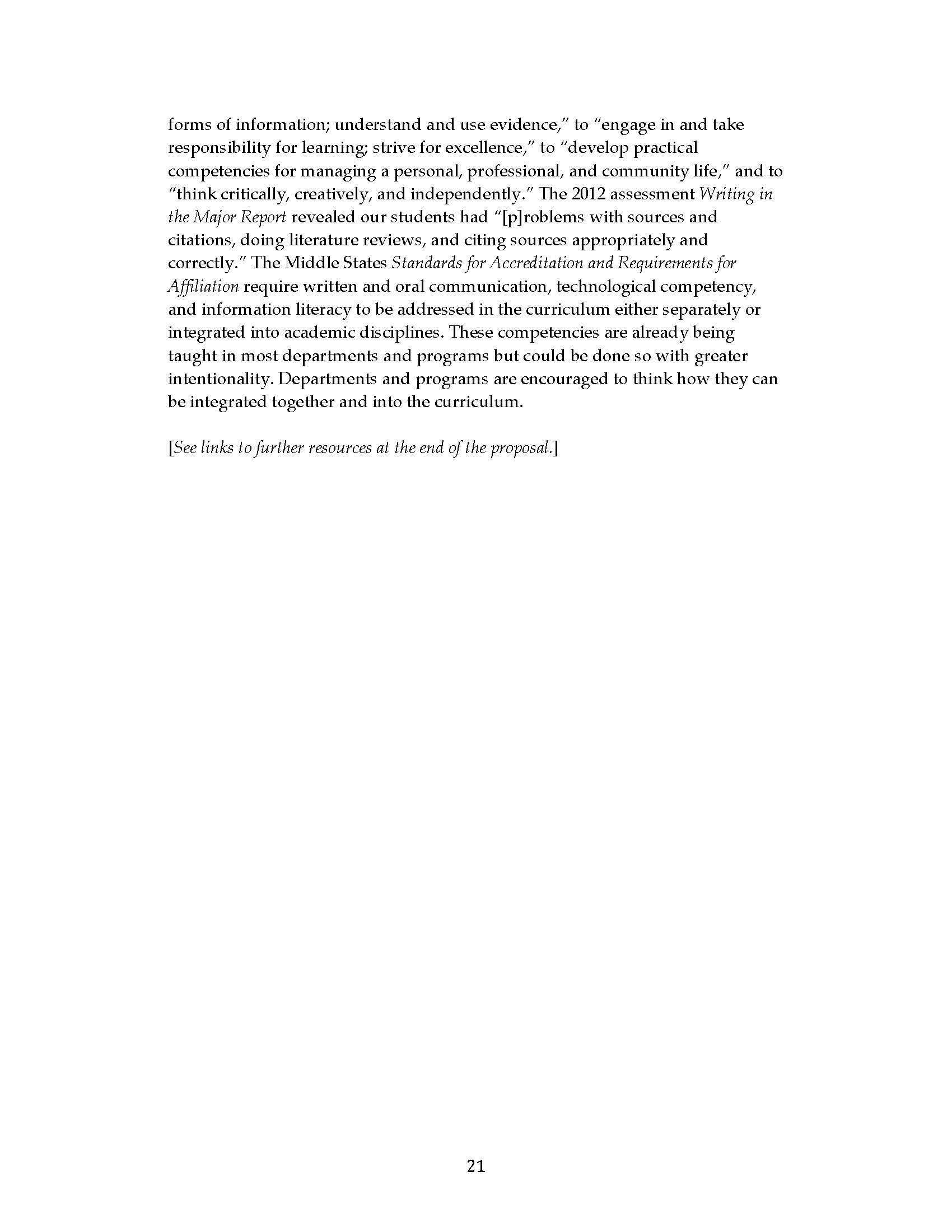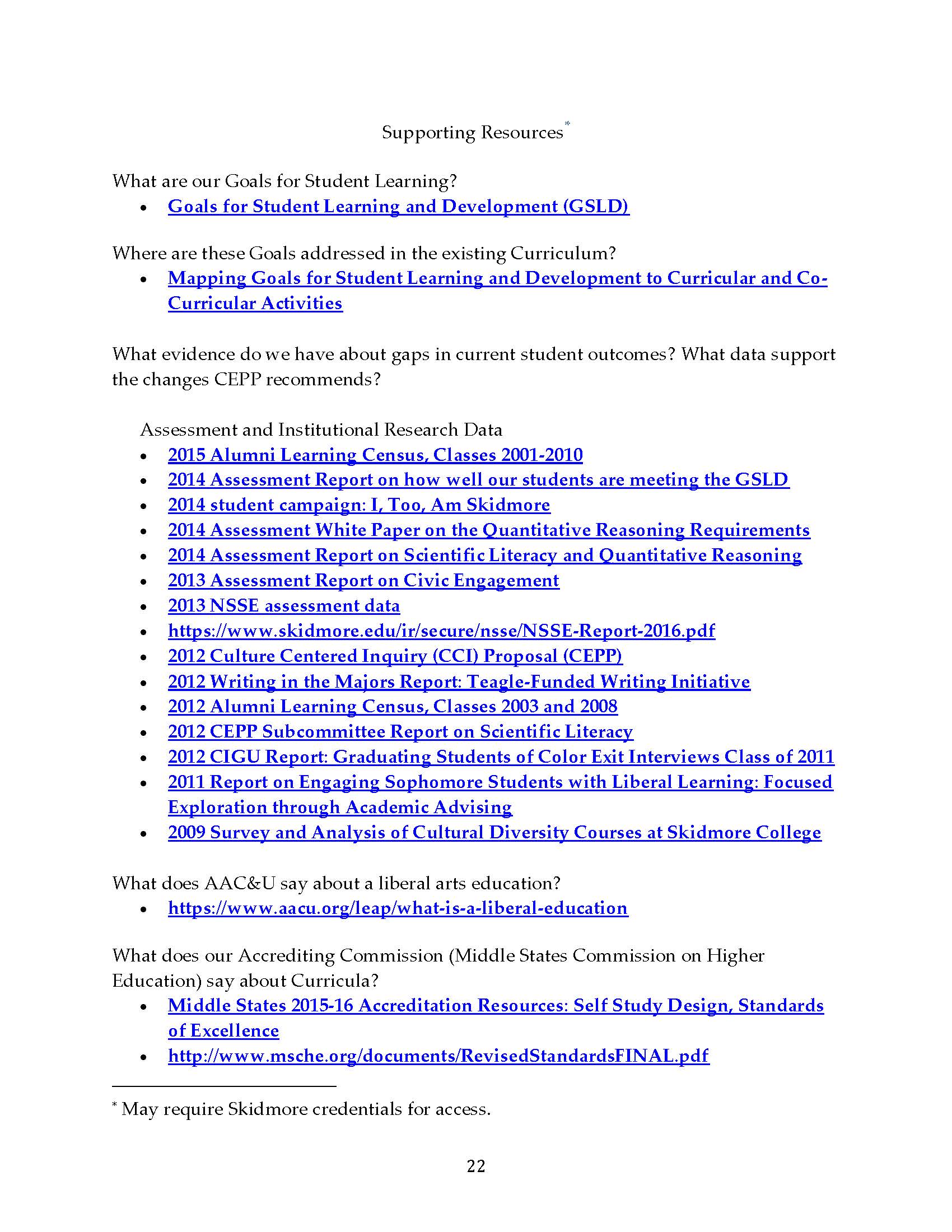On Feb. 28, Skidmore Faculty received the newest version of The Committee on Educational Policies and Planning’s (CEPP) General Education Curriculum Proposal, the culmination of nearly eighteen months of work. Although the proposal outlines the details of every requirement, many are left largely unchanged. The most significant revisions focus on increasing the rigor of the quantitative reasoning and cultural diversity requirements, as well as mandating a culminating experience for every department’s graduating seniors. The Board finds the proposal to be largely satisfactory, however despite its good intentions, problematic wording in some clauses leaves the document dangerously vague. The Board suggests the proposal not be approved in its current form, but rather that it be revised to improve clarity, and subsequently be approved by Faculty in May.
The introduction of the Bridge Experience: Power and Justice requirement is likely the most controversial aspect of the proposal. The goal of this requirement is admirable; CEPP argues that by adding a 1 course requirement taught by a variety of departments examining power and injustice through relevant lenses will encourage a heightened understanding of domestic diversity. This amendment responds to a survey which highlights a weakness in "understanding people of other backgrounds," with 70% of Skidmore Seniors responding strong perceived gains. The same report states that Skidmore ranks below peer schools in "emphasis on encouraging contact among students from different backgrounds." The proposal itself emphasizes self-reflection as a pedagogical tool, drawing concern regarding not only the substantive quality of the courses offered, but also whether or not the original issue of interaction between students will be addressed. In trying to address students’ decisions to self-segregate, adding a vaguely worded diversity requirement offers a solution out of touch with the cited problem.
That being said, the Bridge Experience’s flexibility regarding what types of courses can satisfy it offers beneficial latitude. Professors will be able to incorporate topics they specialize in, thus rendering a higher quality educational experience. Despite this, the Board recommends implementing more specific course goals that do not ring like the now dated “check your privilege,” a phrase that has not worked well as a pedagogy.
For an additional diversity requirement, the proposal replaces the Non-Western requirement with a Global Cultural Perspectives requirement. The committee has not finished thinking through how this new requirement will be an improvement on the previous one. In the first paragraph of the section, the term ‘global south’ shows itself as a symptom of dated diversity teaching. Global South, just like the previous term ‘non-western,’ establishes a ‘West and the Rest’ conceptualization of international diversity. Passing this section irresponsibly sets back future students who, as it stands now, would be discouraged from nuanced international discussions.
The strengths of the existing proposal lie in its efforts to standardize rigor among departments, namely by mandating that each program require graduating students to complete a culmination project. Currently, departments such as Economics and Environmental Studies require a formal thesis or capstone project, while programs such as History require more modest research requirements.
Art History does require seniors to take a course to culminate their experience, but the focus is heavily on developing job application skills, rather than on research. Political Science and Religious Studies do not require any specific course for seniors, let alone a research, capstone, or thesis project. Philosophy majors are only permitted to complete a thesis if department faculty accepts their proposal.
The result is varying degrees of rigor that ultimately disadvantages students by depriving some students of the benefits of completing a final study in their major. Namely, students who do not complete some type of independent research have less of an opportunity to synthesize four years of coursework, and do not create a final sophisticated product that allows them to connect aspects of their liberal arts education.
Thus, the Board supports the Senior Coda portion of the proposal. Additional efforts to level discrepancies among departments, such as the Information, Technology, Visual, Oral, and Writing Literacy Competencies within the major, will benefit students by further leveling discrepancies. In this respect, the Proposal is an appropriate response to an easily identifiable problem; an inconsistency in goals among majors.
CEPP is well intentioned in matters of power, injustice, and diversity, but the Bridge Experience and Global Cultural Perspectives aspects of the proposal require critical attention to ensure a quantifiable improvement in cultural understanding and diversity at Skidmore.
